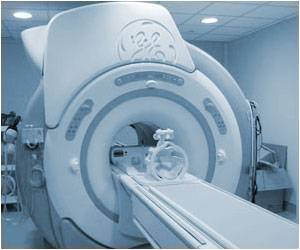Highlights:
- Stem cell scientists have uncovered crucial disparities in kidney formation in men and women
- Findings from the study will be key in treating kidney related injuries or diseases
- A database created as part of the study will help scientists study gene expressions and anatomical framework of kidneys
Read More..
The Study
Published in the Developmental Cell, the lead author of the study is Andrew McMahon, Director of the Eli and Edythe Broad Center for Regenerative Medicine and Stem Cell Research at USC. The focus of the study was a mouse kidney in the lab and hence, its certainty of applying the findings to humans in the unknown as yet. However, it has been proven that research based on mouse organs has helped in understanding human diseases.Structural resemblances and gender differences have been reported earlier in the key components of mammal kidneys like mice, rats and humans. Single-cell RNA sequencing of adult male and female mouse kidney cells were combined by McMahon and his team of scientists and then compared to cell cultures in the lab in order to deconstruct the kidney. A comprehensive, cell-by-cell look into the kidney was the result of this exercise.
“What we've done is, for the first time, taken a complex organ to single-cell constituents, and then identified all the genetic activity occurring inside each cell, then reconstructed the kidney with a level of detail never seen before. Now, anyone can go to our online database and pinpoint the kidney cell types expressing any of the genes in the mammalian genome,” says McMahon.
Findings from the Study
Significant variations between the sexes in the expression of genes linked to hormonal regulation, kidney disease and important physiological functions of the kidney have been noted. Differences in the genes that code for enzymes that control blood pressure, between the sexes was observed, for instance.Differences in the proximal tubule area of the nephron – the core tissue responsible for reabsorption of essential factors like glucose and metal ions and drug detoxification, were particularly evident.
“These results highlight the need for a better understanding of sexual diversity within the human kidney,”McMahon said. “We know there are similarities between mice and humans in susceptibility to acute kidney injury -- males are at a distinct disadvantage -- and that sex differences can potentially impact drug studies and damage by kidney toxins,” he added.
Significance of the Study
The importance of accounting for gender differences has been emphasized by the National Institutes of Health. The risk for disease, its treatment and how patients respond to medications – all of these are affected by gender.The current research from USC stresses the importance of biological differences, whereas in the past, the scientists applied the findings from studying male physiology to women. “Profound differences distinguish the male and female kidney. The kidney is the body's regulator of fluid balance, and since women bear offspring, there are likely critical differences required in the mother for the benefit of both mother and offspring,” McMahon commented.
Why is the Study Relevant?
Kidney research has been a priority for the USC Stem Cell initiative. 15 percent of American adults are affected by kidney disease, and marked variations in ethnic and sex-related vulnerability to kidney injury and disease have been observed. According to the Centers for Disease Control and Prevention, over 240 people on dialysis die every day.By helping to distinguish how kidney disease would affect men and women differently, the findings from the study could benefit around 37 million Americans. They can help doctors precisely identify the genes linked to disease. Additionally, scientists would also be able to reprogram DNA to manipulate cells and also make new tissue to replace those destroyed by the disease.
Overall human health could be benefitted by enhanced understanding of genetic programs that might influence drug trials, drug toxicity and reprogramming of cells, McMohan said about the findings.
Kidney Cell Explorer is the searchable database that houses this data which would support scientists all over the world to study gene expressions in every cell of the kidney, in the correct anatomical framework. McMahon added that clinicians focused on studying disease-associated genes could search the database to find which cells express the gene, enhancing the connection between genes, cells and disease.
Reference:
- USC stem cell scientists reveal key differences in male, female kidney - (https://news.usc.edu/162474/kidney-gender-differences-usc-stem-cell-research/)
Source-Medindia
















